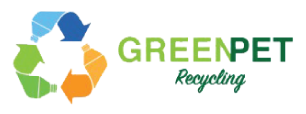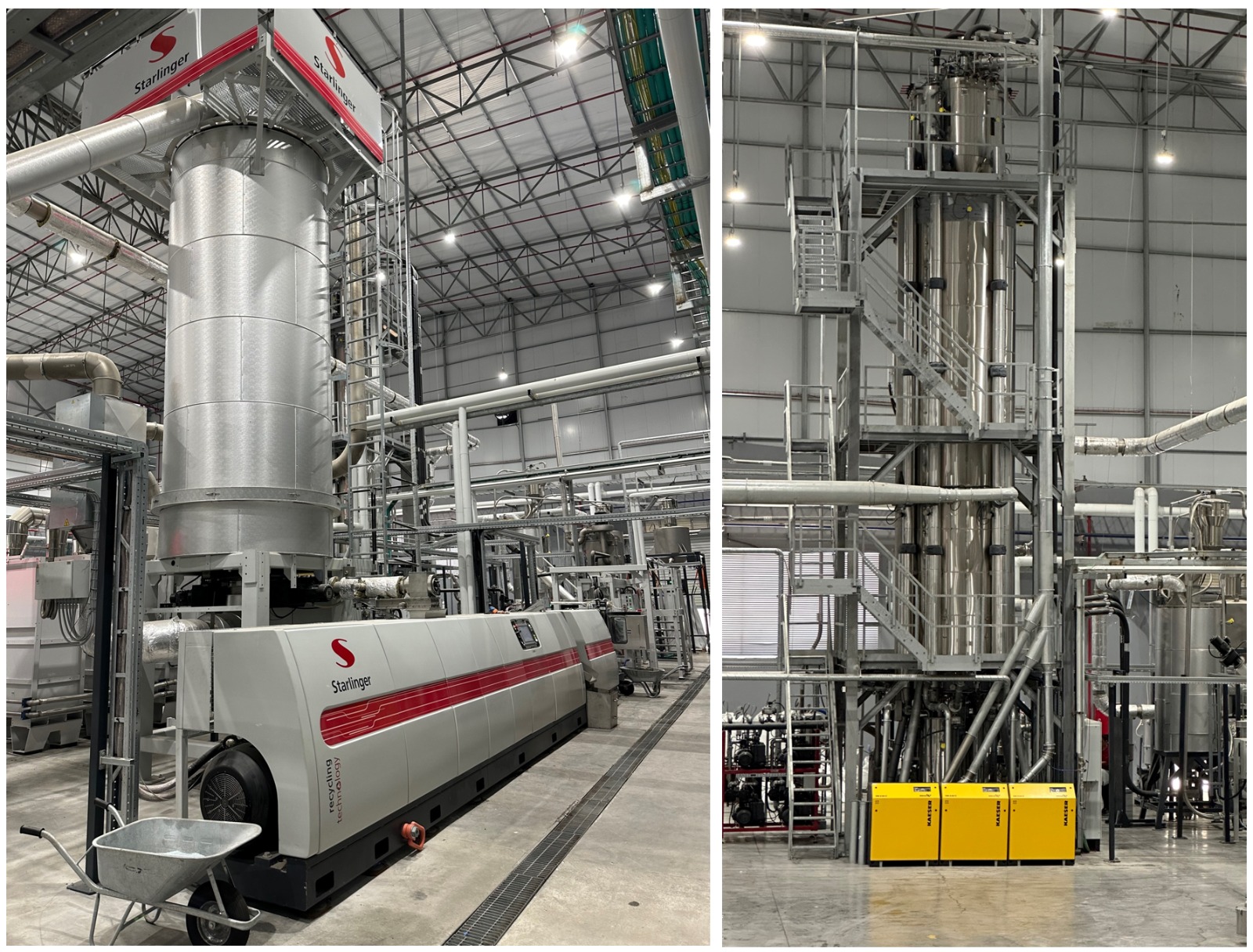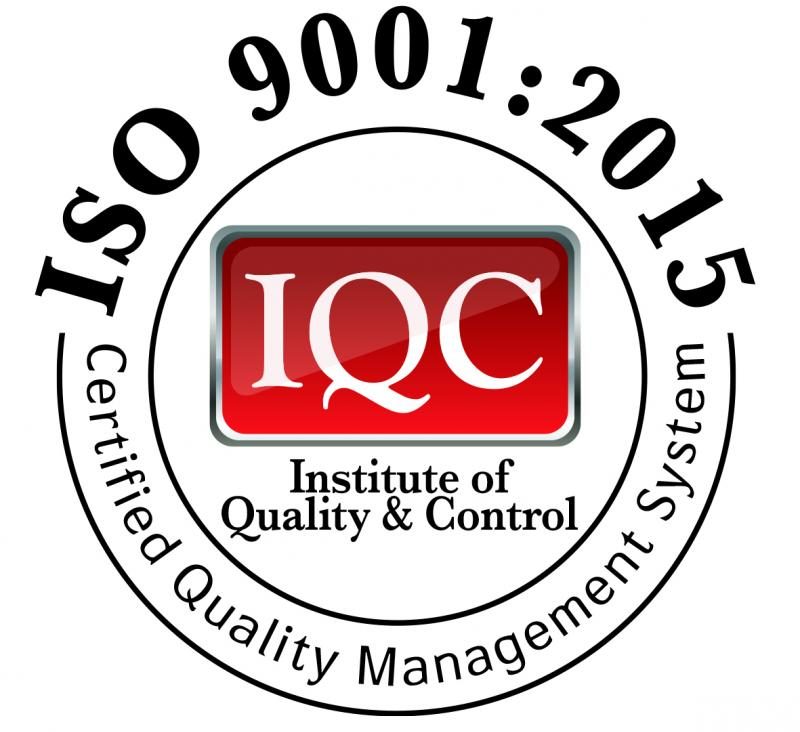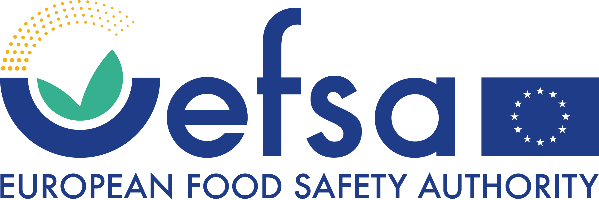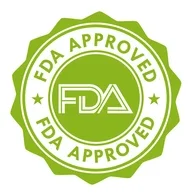GreenPET Recycling is pleased to announce that we now provide high-quality RPET raw material which meets international FDA, FSSC 2200 and EFSA food-contact standards, after installation of a new production line based on SSP technology
“It’s really exciting”, says Zohar Levy, GreenPet’s CEO, as he holds a handful of pellets in his hand. “These pellets are locally manufactured recycled RPET, the first to be produced in Israel! They are high-quality and in compliance with both quality and food-contact standards”. And for those who do not manufacture PET products for a living, we will explain that up until now recycled RPET was not available in Israel, and had to be imported. What’s more, the quality of this imported material does not always enable easy and reproducible production over time. In fact, the absurd situation is that we import waste from other countries.
Why we need recycled RPET?
The polymer PET is considered to be one of the most useful polymers, with the beverage bottle industry, for example, relying almost exclusively on this raw material. Considering the amount of bottles manufactured in the world every day, it is not surprising that plastic bottles of different sizes make up quite a lot of plastic waste. Global regulations are beginning to require large companies to use bottles made of recycled material, or to at least incorporate increased percentages of recycled material in their product.
However, this is not as simple as it seems. While there are many bottles which can be recycled, and seemingly there should not be a shortage of recycled raw material, things are not that straightforward. The bottles must be collected and sorted by color, as some of the bottles are made of colored rather than transparent plastic. Moreover, the bottles do not always reach the recycling stream, but rather thrown into a landfill or burned. Therefore, extensive mobilization is needed so that no PET bottle will be left out of the recycling cycle.
Of course the recycled raw material must meet the same standards as virgin raw material, including very stringent food and drink contact standards. After all, the thought that a bottle which was once considered waste now contains the water or juice I drink may be quite disturbing.
RPET recycling process at the GreenPET recycling plant
All the feed materials are sourced from local plastic bottle waste. The process begins with rough sorting of the material which arrives in bulk or bales. The material is then sorted in order to separate out metals, corks and labels, and undergoes perforation to reduce the volume. Advanced automatic systems sort the waste using a combination of two sorting technologies, laser and NIR. Manual control is performed at a separate station. In the grinding and cleansing stage the material is hot rinsed with chemicals at 3 different production stations that are connected in a row in order to obtain high-quality material. This stage removes organic residues such as various adhesives and solvents. The chemicals are then rinsed off and the ground material is dried. Separating the dust is also necessary and carried out towards the end of the process. Another sorting system sorts the flakes themselves after all the preliminary cleaning and sorting processes. The entire process results in clean and sorted recycled RPET flakes, however without food contact approval. This is where our new machine line comes in.
High-quality raw material using the new line of machinery manufactured by the Austrian company Starlinger
We recently completed installation of the new line of Starlinger machinery, and now offer very high quality RPET. The line provides homogeneous raw material in the form of pellets, not flakes, with virgin raw material quality, and most important, at a cleanliness level that meets international standards such as FDA and EFSA food contact standards. This is obtained owing to SSP (Solid State Polycondensation) technology. In this method the PET flakes are heated to a certain temperature that enables the removal of small and volatile molecules as well as contaminants. After the small molecules are removed, the high temperature under vacuum conditions enables the polymer chains to reach higher intrinsic viscosity and narrower molecular weight distribution – in other words material with more uniform properties. The melt than undergoes pelletization, which produces, as noted, recycled RPET pellets, identical in quality to the virgin raw material.
The Bottle Deposit Law in Israel
The raw material obtained after it comes out of the newly installed machine line is sold to plants for reuse and for the production of new bottles. Thus, in fact, GreenPET carries out bottle-to-bottle recycling. With the expansion of the Bottle Deposit Law to large bottles at the end of 2021, there is an even greater need, and a requirement, for beverage bottles to reach the recycling stream and not to be thrown out along with the regular waste. Even if the street recycling bins were removed from the public sphere, and collection from people returning the bottles is still in the adaptation and trial run stages, this system will improve significantly in the near future, and we call on everyone to join the recycling and circular economy efforts. We also call on plastic manufacturers in Israel who use RPET raw material for their products to contact us as soon as possible. Let’s start working together – we will provide locally produced high-quality recycled material, while you will not have to wait for imported material, and will achieve significant savings on shipping times, transportation and logistics! We invite you to talk to us today!
